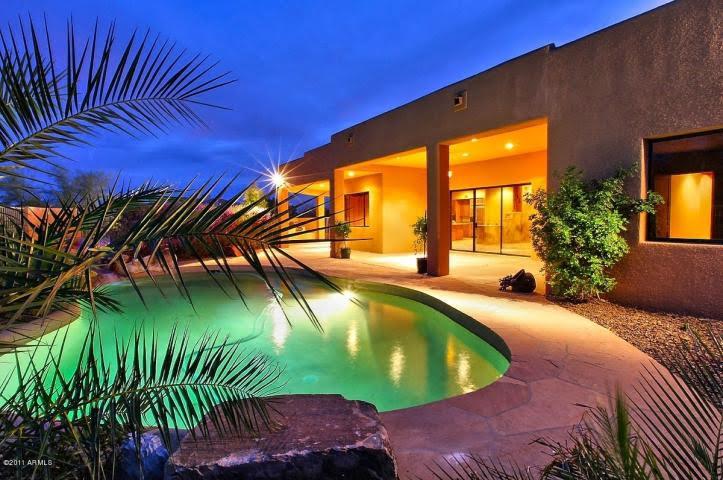You can afford anything you want, as long as it makes money! That’s the concept behind house hacking and how it makes you money
This is the main concept I want you to keep in mind while you read all that follows. Understand that by its’ very nature, if the thing you want is able to make you money, then you can afford having it, doing it, being in it, etc…
Therefore, the question before us should never be: How can I afford it?
Instead, the correct question is: How can I rig this thing so it makes me money, because then I can afford it?!
So, as you get up each day, your frame of mind should be to ask yourself these two questions:
- What do I want?
- How can I rig it to make me money, so I can afford it?
This is really very simple, don’t you agree? And past this, one additional thought to ponder is that the one thing that constitutes freedom more so than any other is the freedom to divorce yourself from any one physical location – the freedom to chose to live anywhere you want, anytime you want, for whatever reason you want. Most people don’t dare to conceive of so much freedom. There is never a shortage of excuses. But don’t you agree that this ability to pick up your stuff and go wherever your soul is calling you indeed personifies ultimate freedom in life?
Now, living in a nice place costs money (in some cases lots of money), and I am not so blinded by my own genius that I can’t see that. Indeed, cost of living is a challenge. Therefore, if the answer to the first question (what do I want) is that you want to live someplace more romantic than where you currently are, then you must answer the second question – how can I rig it to make money, so I can afford it?
Enter house-hacking…
PS – Be sure to check out my introductory meta post How to make money with house hacking >
What is House-hacking?
I am uncertain as to the origins of the term house-hacking. My good friend, Brandon Turner, of the BiggerPockets fame, likes to take credit for creating this term. Now – I don’t know if Brandon actually did any househacking or not, nor if he actually came up with the name, but I figure just in case he did one or both I’ll give him credit here 🙂
Also, and this is a bit on a personal note, because I know that Brandon would love nothing more than to live in Hawaii full-time (although he would need to think this through as it relates to Rosie’s education), hopefully this series inspires and empowers him to take action sooner rather than later! I don’t have many close friends, but Brandon Turner I love.
Having said this, house-hacking is essentially a blend between real estate investment and a home. Basically, your thought-process is like this:
You decide you want to live someplace nice, but it costs a lot. Obviously, unless you’re independently wealthy, and have the capacity to simply stroke that check, this cost is a problem. So, in order to solve this problem, you are going to think of this house as an investment instead of just house. In other words, you will move into the house by which making it your primary residence, but you will at the same time rig it in such a way so that the house earns income. This income will pay for the expense of you being there, and thus – you can afford it.
3 Ways to Make Money with House-hacking
There are several ways you can approach this:
- Equity House-hacking
- Cash Flow House-hacking
- Blended House-hacking
All of these focus on of-setting you cost of living in that wonderful house (your burn), but they do so in different ways.
Equity House-hacking
Equity house-hacking focuses on equity pay-off once you sell the reimburse you for the cost of being there. The easiest way to conceptualize this is as a fix & flip, only with you living there for the duration. You buy a house that needs a little work because you think that after the work is done you’ll be able to sell it for much more than what you’ve got in it.
So, let’s say for example, the you buy a house for $225,000, and let’s just say that it costs you $1750/month to live there (you finance it). As you live in it for a couple of years, you gradually perform $30,000 worth of repairs. Why – because you figure that having done those repairs you’ll be able to sell the house for $350,000.
So, $1750/month for 24 months means you’ve spent $42,000 in all on carrying this house. An additional $30,000 of rehab money, plus the original purchase price of $250,000, means that your total all-in investment on this project is $297,000.
If you are able to indeed sell this house-hack for $350,000, then you would generate a profit of $53,000 (I am not including fees here for simplicity). What this essentially means is that you live in this house for free for 2 years. And guess what – can you visualize that if you were to add a “0” on the end of each number in this example because the location you want to house-hack is just a bit more pricey than what I described, the theory behind the process would still be intact?!
Well, it can work for sure, but there are issues with this. I am not going to pass judgement on whether this method is better than the other two just yet. Keep reading – there is a section at the bottom discussing pros and cons.
Cash Flow House-hacking
In this model you are also going to move into the house, but instead of looking toward equity appreciation to realize the transformation of your house from just a place to live into an investment, you will look toward income instead.
What does this look like? Well, I have several students who’ve purchased duplexes and moved into one side. I’ve got several students that are taking the cash flow House-hacking to another level by simply renting out rooms in their Single Family houses. Granted, these are people without children, and having a stranger in the house is not everybody’s cup of tea. But, for those who want to live in places where cost of real estate is high, this may be worthwhile sacrifice.
Interestingly, if you read up on the current state of real estate market, you are likely to come across articles on “shared living”. Indeed, both rents and house prices have outpaced growth in incomes in many of the more desirable markets, and roommates are not as uncommon today as they were even just a few years back.
More on this in a bit. For now, let me just say that while it is workable, this method also has some shortfalls…
Blended House-hacking
This model combines the best of both worlds, so to speak, which is to say that while you wait for the appreciation to take hold, you are managing to generate rental income which offsets you burn.
Which method of house-hacking is right for you?
First and foremost this decision is driven by the marketplace. Once you decide where you want to live, you need to study the market to understand which method represents a more viable opportunity.
Secondly, I’ve preached for many years that while it is absolutely crucial to grow personally and professionally, it is nevertheless important to play to your strengths whenever possible. With this in mind, do you have the skills necessary for completing a rehab? If so – do that, so long as the market lets you. Or, are you a better fit for managing tenants? Which skill-set best supports your house-hack endeavor?
Additionally, lest we forget – this is not purely an investment we are talking about. You and your family are actually going to move into this house, this city, this State. It is hard enough to shop for a residence, without any concern for investment value. Finding something that works on both counts requires patience and skill.
Finally, skills are important, but so is your comfort zone. Again – stretching is important, but not if stress is going to cause you to develop an ulcer and break out in hives… There is no such thing as a risky deal, only risky investor.
The challenges of the house-hack (and something I am hoping to put in perspective for you) is that you somehow have to successfully marry all of the above elements. It’s a place you’ll live – it’s an investment – the market determines what type of an investment it is – your skills do too – and your comfort level to boot. That’s a lot of elements to synthesize!
What does this look like in practice?
Well, let’s talk about me briefly. I don’t think this is going to come as much of a surprise for anyone, but I come from a school of thought that as much as possible everything I touch must be making income. Value, for me, is pegged on and is a function of income. Safety, for me, is a function of income.
Now, in my stupid youth I made the mistake of focusing solely on income, with total disregard for equity. That was stupid, and is a discussion all to itself. Suffice it to say that today I realize that in order to drive the investment returns (IRR) both equity and income are necessary – I get a little money while I hold, and more money when I sell, that kind of thing.
So, my house-hack is of the blended variety. Chandler in 2017 is still very much a growth market in terms of employment, population trends, and other economic drivers. For this reason, while real estate has appreciated dramatically since the days of the financial meltdown of 2008, there are fundamentals to support future growth – and I certainly want a piece of it.
Having said this, I am a safety player, and I want to hedge my bets. And, even though I am bullish on equity growth, I am cognizant that I do not have a crystal ball. For this reason, the house-hack I chose to pursue has a strong cash flow component. There is risk in everything, but I think I am reasonably well hedged.
There is much more to this conversation, but it is best handled with specifics. I’ll cover all of it in future articles, so stay tuned. For now simply get it through that thick head of yours – you can live anywhere if you can make money at it!
Trust me – it’s possible! Keep reading…
And be sure to check out my introductory meta post How to make money with house hacking >


One Comment